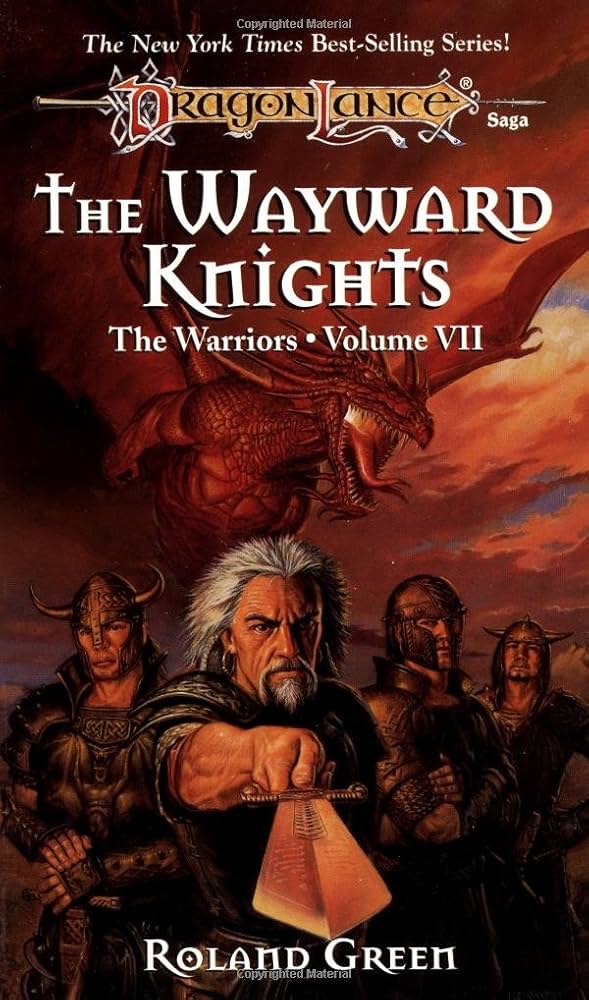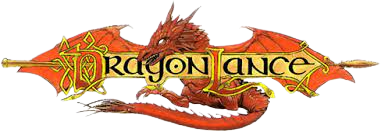The Wayward Knights

Table of Contents
ToggleOverview
The Wayward Knights, written by Roland Green, is part of the Ergoth subseries within the Dragonlance Warriors line. It tells the story of Vinas Solamnus’ descendants and the shifting tides of loyalty and rebellion within the ancient empire of Ergoth. Unlike the high fantasy epics filled with dragons and gods, this novel centers on political maneuvering, military conflicts, and personal code within a human empire on the verge of transformation.
The novel expands the lore of Krynn by exploring how legacies endure—and how heroes must choose between law and justice.
Main Character: Sir Pirvan of Tirabot
A knight with a complex past, Pirvan was once a thief, now committed to the ideals of the Solamnic Orders.
In this installment, he’s called to act as mediator, protector, and investigator amid a volatile rebellion in Ergoth.
Pirvan is both pragmatic and idealistic, forced to weigh his oaths against shifting political realities.
Supporting Characters
Haimya – Pirvan’s wife and steadfast companion. A former rogue herself, she offers sharp insight and often tempers Pirvan’s rigid sense of honor with wisdom.
Sir Gerik – A young knight-in-training who looks up to Pirvan. His idealism serves as both inspiration and complication.
Emperor of Ergoth – A ruler navigating a crumbling political structure, caught between appeasement and assertion.
Local Nobles and Rebels – These factions blur the line between villain and victim, reflecting the complexities of governance and revolt.
Setting
Set in Ergoth—a fading empire on the western coasts of Ansalon—the novel offers a rare glimpse into one of Krynn’s least explored human civilizations.
The empire’s once-mighty cities, rural provinces, and contested borders all play key roles. The physical decay of Ergoth mirrors the erosion of trust and unity within its institutions.
Plot Summary
Pirvan is summoned by the Knights of Solamnia to investigate and negotiate peace in Ergoth, where rebellious nobles threaten the empire’s stability. What begins as diplomacy quickly spirals into a moral and military crisis.
As he travels through a land seething with unrest, Pirvan discovers conspiracies, ancient grudges, and personal betrayals. Each faction believes it holds the moral high ground, leaving Pirvan to choose between enforcing flawed laws or doing what is right.
Haimya, Gerik, and other allies become crucial in unraveling the deeper causes of rebellion. Ultimately, Pirvan must risk his life—and his honor—to defuse the rebellion not with force, but with a truth that even the Emperor cannot deny.
Themes
Law vs. Justice – Pirvan’s struggle encapsulates the difference between following orders and doing what’s morally right.
The Burden of Legacy – As a knight, Pirvan is the inheritor of ideals that are difficult to apply in a fractured world.
Civic Duty and Individual Conscience – The book questions how one serves both nation and self when the two are in conflict.
Loyalty and Betrayal – Friends, rulers, and rebels alike are caught between personal loyalty and political survival.
Tone & Style
The Wayward Knights is politically charged, thoughtful, and grounded. The action is strategic rather than fantastical, with emphasis on conversation, planning, and character decisions.
The prose is clear and formal, in keeping with the diplomatic and knightly themes. Pirvan’s internal dilemmas are just as gripping as his external challenges.
Reception
The novel is praised for:
Bringing political nuance to Dragonlance.
A protagonist with rich emotional and ethical depth.
Expanding the lore of Ergoth and the role of Solamnic knights beyond warfare.
Some critiques:
Slower pace and limited magical elements may deter some fantasy readers.
Heavy focus on dialogue and diplomacy over action.
Final Thoughts
The Wayward Knights is a mature and nuanced tale of knighthood tested by moral ambiguity. It shows how even the most loyal warrior must sometimes choose the harder road—not to obey, but to understand and act with wisdom.
A political fantasy with a human heart, it honors the complexity of ideals in a world that rarely rewards them.
Recommended for:
Fans of political intrigue and ethical dilemmas in fantasy.
Readers who appreciate slower, character-driven narratives.
Those looking to explore lesser-known corners of Krynn’s storied past.
